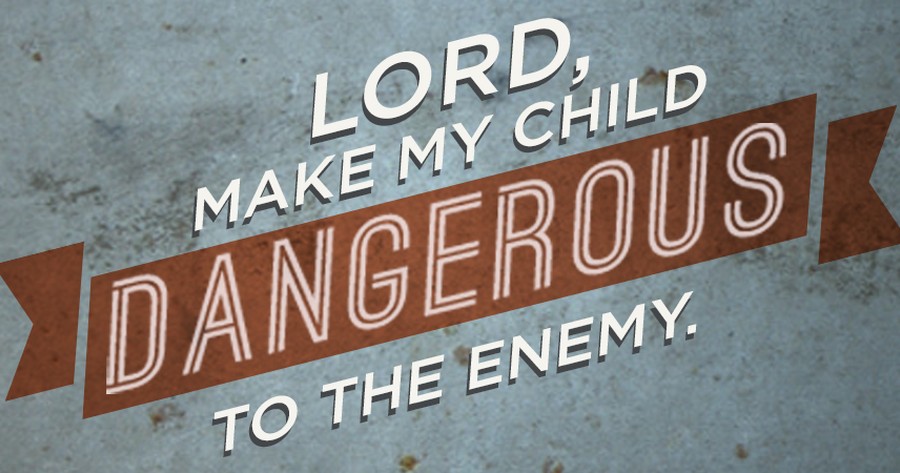I pen these words a few days after a bomber took out an eight-year-old as he waited for his dad to cross the finish line of the Boston marathon. There’s not a single day I drop my son off at preschool that I don’t think about Sandy Hook and have to fight the urge to do a U-turn in the school parking lot, bring him home, and lock all the doors. Then there are super viruses, bacterial infections, and childhood cancers. It’s enough to make me want to say this desperate prayer all day, every day, “Jesus, keep my kids safe. Jesus, keep my kids safe. JESUS, PLEASE KEEP MY KIDS SAFE!”
But our kids aren’t growing up in a safe world. In fact, no child ever has.
It’s natural to want our children to be protected from harm, but lately I’ve been thinking that when we spend all our energy praying for our children to be safe, we are missing something big. We are asking God to be our children’s safety net. Is it possible that instead He wants to call them to something dangerous?
This is how Jesus taught us to pray:
“And [Jesus] said to them, ‘When you pray, say:
‘Father, hallowed be your name.
Your kingdom come.
Give us each day our daily bread,
and forgive us our sins,
for we ourselves forgive everyone who is indebted to us.
And lead us not into temptation.’” (Luke 11:2–4)
Jesus doesn’t teach us to avoid asking for needs to be met. “Daily bread” represents the essentials of life. Health and safety certainly qualify. But asking for those things wasn’t the essence of His prayer. His focus was on the Father’s will.
The words “your kingdom come” slay me when I think about praying for my children. I spend so much of my time praying for my kingdom. I am supposed to be praying for His.
With God’s kingdom in mind, is safe the most important thing for my kids to be? When I look hard at the life God calls us to as Christians, the answer is clearly no. The Christian life is not a safe life. It is a call to live counter-culturally and to willingly engage in battles that are big and costly.
Ephesians 6:12 offers this perspective:
“We do not wrestle against flesh and blood, but against the rulers, against the authorities, against the cosmic powers over this present darkness, against the spiritual forces of evil in the heavenly places.”
We want our children to follow Christ, but that likely won’t lead to an easy, safe life. It means they will need to pick up their cross. It means they will need to lay down their lives. It means they will become warriors in battles against the “spiritual forces of evil in the heavenly places.” It means they won’t always be “safe.”
I have a friend who has often prayed this prayer for me:
“Jesus, make Erin and her family dangerous to the Enemy.”
Dangerous? It’s the opposite of safe. But the truth is no matter how much we wish it wasn’t so, there is no guarantee of safety in this world. And while it may temporarily soothe our anxiety to beg the Lord to hide our kids from all threats of harm, there is a better prayer we can be praying:
“Lord, make my child dangerous to the Enemy.”
It’s a prayer that may not wrap us up in comfort like begging the Lord to keep our kids safe has a tendency to do. It is a bigger prayer with bigger implications than a safety net can ever offer. But decades from now, after I am long gone and my kids come to the end of their own lives, if I’m honest, I hope they won’t have played it safe. I hope they will have given everything they have to further God’s kingdom. I hope others will see they were a serious threat to those spiritual forces of evil. As their momma, prayer is a huge part of my job, so I’m resolved to pray for more than safety. Yes, I want them to be protected, but even more than that, I want them to be dangerous.
Will you join me in praying for God to make our kids a generation that is especially dangerous to the Enemy?




Join the Discussion